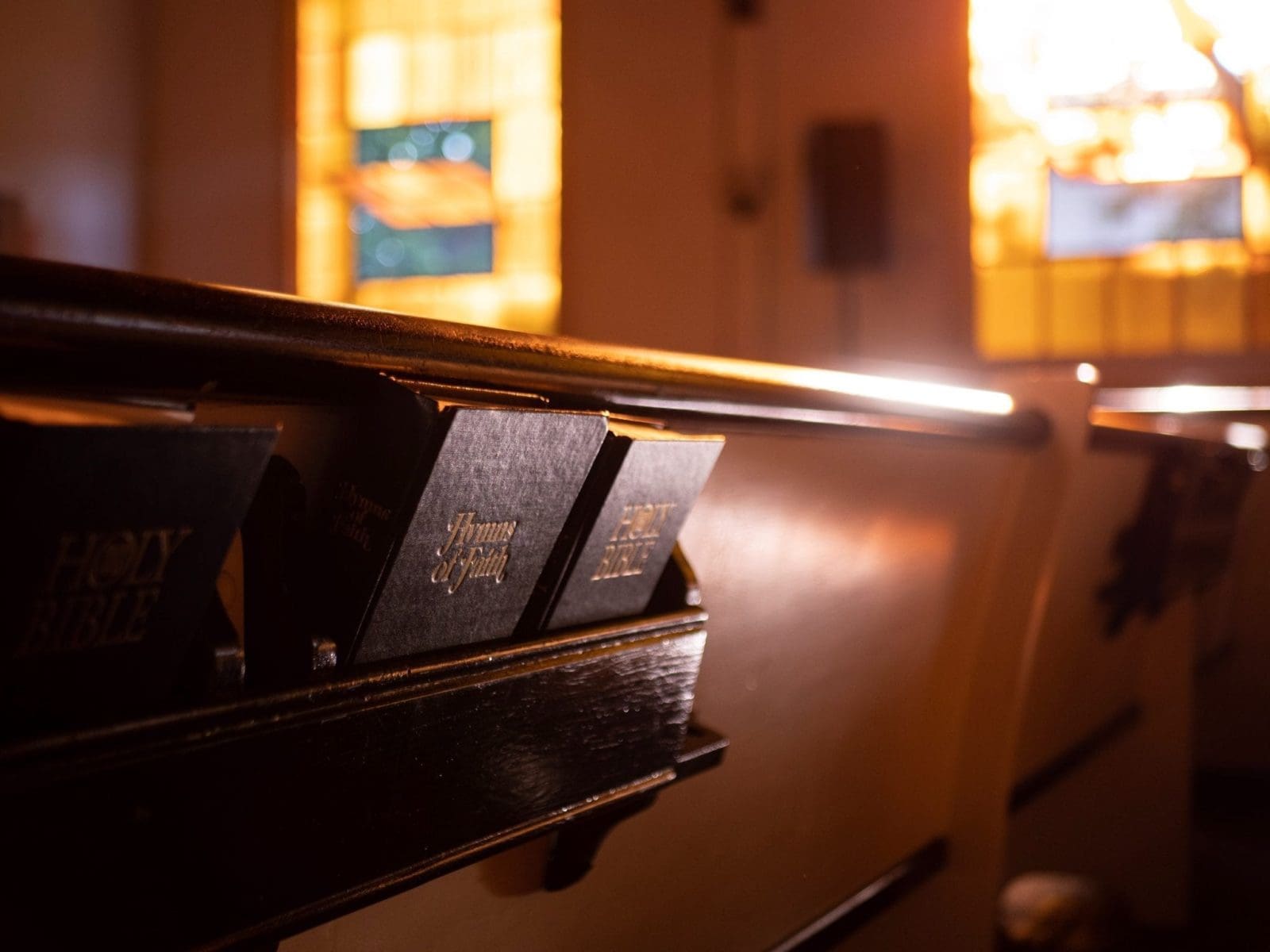Nobody is ready on time. Like fish wiggling on hooks, the four of us ricochet off each other’s limbs, then settle by half steps into the 1993 Ford Aerostar. Our father is yelling, and our mother has a fingerprint of perfume behind her left ear. I’m proud to smell like hairspray.
We ride along, past the neighborhood brocade of two-story colonials Henry Ford commissioned for his white workers. There are decorated heritage lamp posts every 10 feet, and their glow projects maternal warmth in the steel dusk of winter. I know the cost of each wreath because my father works for the city. Even when I’m older and many states away, I won’t be able to see one without thinking of the price my hometown decided it was worth: $8.
At the holiday midnight mass, we bless ourselves with the lukewarm liquid of the spirit and file behind our extended family, hugging and kissing below the Seventh Station of the Cross. The church was commissioned by Polish wealth and built by Polish labor.
I sit in a pew with my siblings, the three of us girls all under 14 and carrying hand muffs that match our small British-looking hats. We appear as though we’re sitting on the audition bench for “Shrunken Margaret Thatcher,” minus the bulbous hair. Above me hangs the painting of a gaunt Jesus shouldering the weight of murder, greedy kings, and poisonous flowers, while my small hands are nestled in department-store fur.
My older sister calls the opulence of the church Polish Gucci. I call it a catholic Fabergé egg. The glitz and opulence promises a new start for our vegetal souls, never mind the idea that paradise could be as fake as fake fur.
 Some of my earlier memories of Christmas have an aura of anxious urgency. The urgency to make the impression on our extended family that we had a good life. “Absolutely not a want over here!” These were the same people who, during the other 355 days of the year, we shared small hotel rooms with, errands, and the horrors of the Iraq War. But regardless, once the time of Christmas struck, we were our mother’s hired help, toasting pine nuts and painting the dining room “a less olive green.” It’s as though people in the middle class save up their class anxiety throughout the year to expel it turgidly for two hellish weeks.
Some of my earlier memories of Christmas have an aura of anxious urgency. The urgency to make the impression on our extended family that we had a good life. “Absolutely not a want over here!” These were the same people who, during the other 355 days of the year, we shared small hotel rooms with, errands, and the horrors of the Iraq War. But regardless, once the time of Christmas struck, we were our mother’s hired help, toasting pine nuts and painting the dining room “a less olive green.” It’s as though people in the middle class save up their class anxiety throughout the year to expel it turgidly for two hellish weeks.
At age 12, I was not immune to this same anxiety. You can’t cosplay Margaret Thatcher and be immune. I wanted a Hoover vacuum that Christmas. Maybe I thought if I owned a vacuum, I would be the one giving out the orders, instead of the one cleaning the ice trays.
And then one year, our family from California decided to come for Christmas. And that’s when the charade really throttled our necks. My aunt and uncle lived in Hollywood and before that, New York, so it was just accepted that our home and city must have made them feel like someone was trying to stick a dirty glove in their mouths. Our mother wanted us in French braids, and we were going to serve beef Wellington, like a fancy hotel restaurant with a lobby that smells of chlorine. Our dog was neutered quite possibly just for the event. Had we put up a white picket fence, it would have needed to be whiter.

There’s a Samuel Beckett quote that goes, “nothing is more real than nothing.” But the superficial is the most real because it’s the most cunning. It damages even as life is enjoyable. When I look back at it now, those hats and muffs that my sisters and I wore made us feel good, and yet entitled and falsely special. There’s something sickly about all that, like a Seventh Station Jesus.
But still, reaching heroic proportions of irony, our posturing came into its final form: literal acting. We were encouraged by our parents to put on mini recitals for our relatives on Christmas Eve. Where did we find the time, you may be wondering. I practiced starchy violin notes, while my brother wrote the three of us into plays. When I wasn’t given the lead, I told my brother my schedule was already iffy for next year’s production, that I might be gone seeing a landmark.
With every effort for a crisper picture of middle-classdom, traditions were put on the sacrificing rock. We never practiced our Italian culture or learned about the Feast of the Seven Fishes—a vigil for awaiting the baby Jesus, apparently with enough salted cod to feed the neighborhood. It’s like a synapse of lineage was broken and replaced by magazine paper.
We didn’t know about the Italian bakery on the east side of the city that made the dessert for our parents’ wedding. We didn’t know that our great grandmother, a first-generation Italian, a seamstress, and a sudden widow in a new country, used to only cook with a cast-iron skillet and that it was still in the family. To not live with these small bits picked from the forest floor of family history is a plodding degradation of what it means to be a family at all.
In many ways, all this is about storytelling too. What metaphors do our families have access to that help us cope and divine the importance of the present? The idea of a vigil on Christmas Eve is a great example. Traditions are not just memorized rituals. They’re tools for having more chess-playing quiet in our fast-food minds. Enough at least to realize that family can be a living, breathing center.
About the Author/s
Hanna is a writer and editor based in Detroit and New York City.
